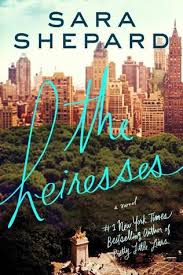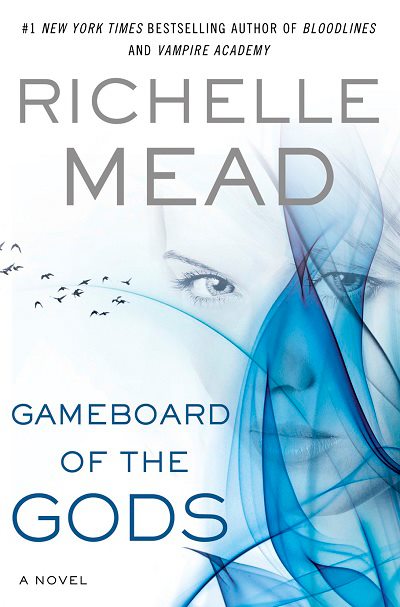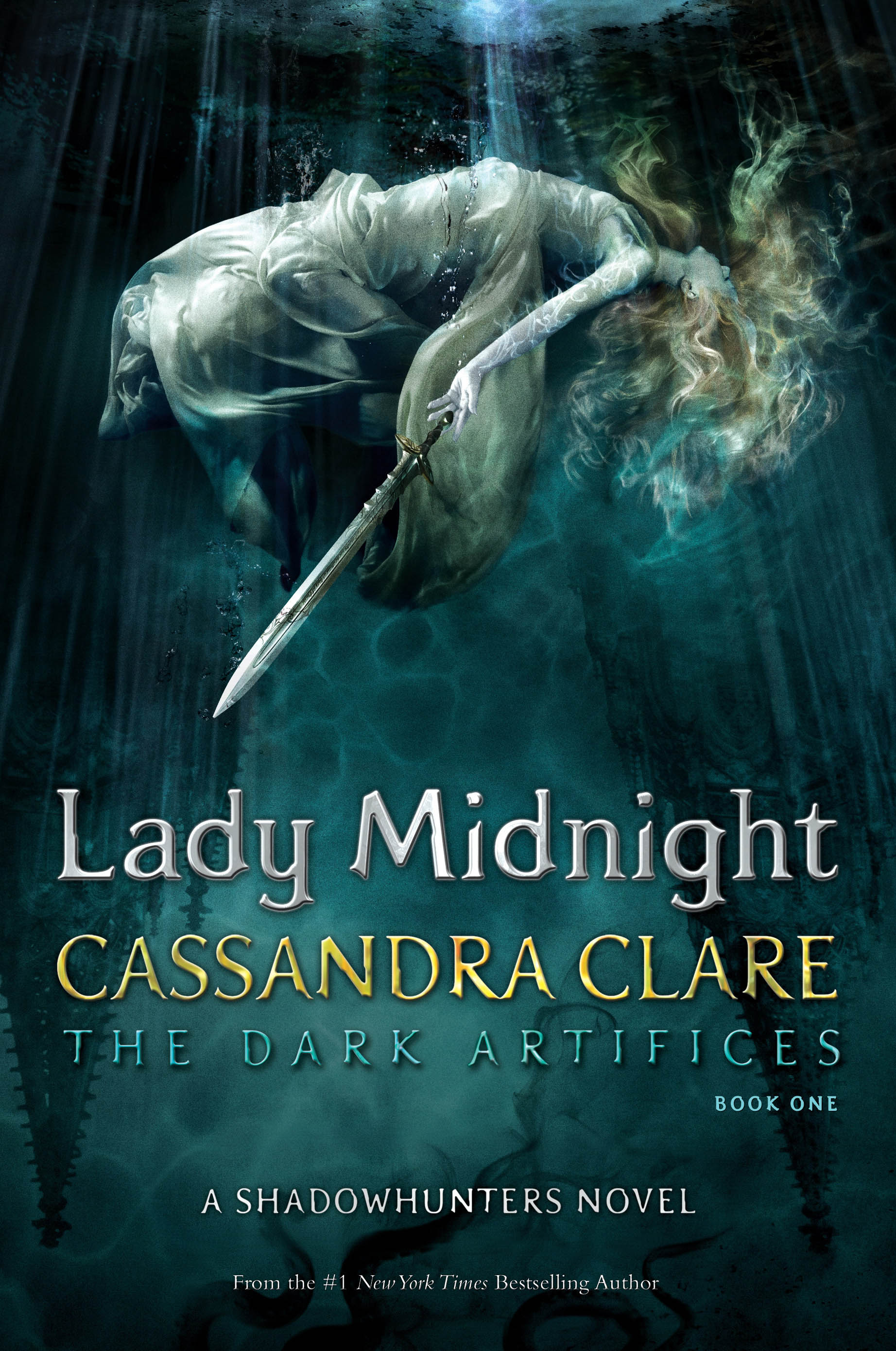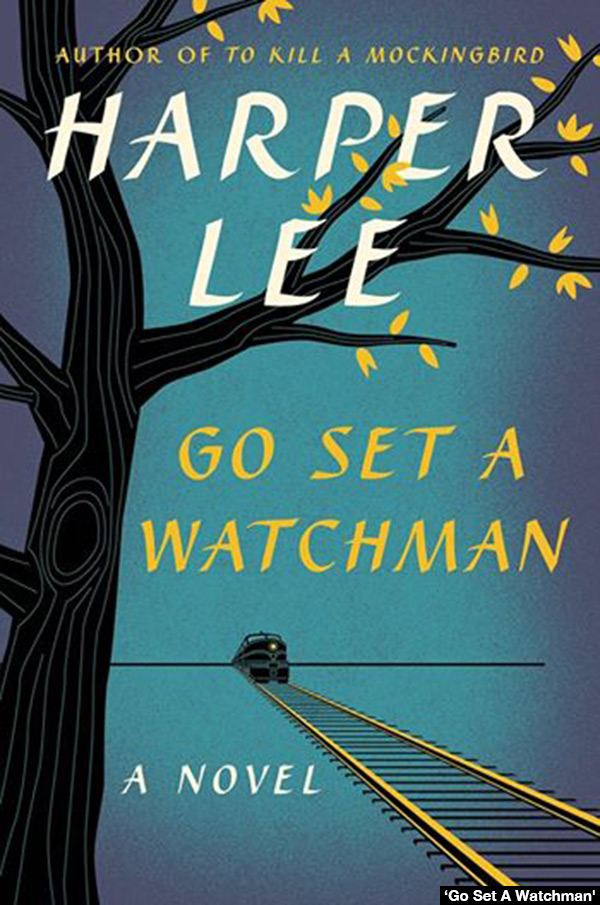
Ana's Rating
Readers Rating
From the publisher:
You know the Saybrooks. Everyone does. Perhaps you’ve read a profile of them in People or have seen their pictures in the society pages of Vogue. Perhaps while walking along that choice block on Fifth Avenue, you’ve been tempted to enter the ornate limestone building with their family name etched into the pediment above the door.
The only thing more flawless than a Saybrook’s diamond solitaire is the family behind the jewelry empire. Beauties, entrepreneurs, debutantes, and style mavens, they are the epitome of New York City’s high society. But being a Saybrook comes at a price—they are heirs not only to a dizzying fortune but also to a decades-old family curse.
Tragedy strikes the prominent family yet again when thirty-four-year-old Poppy, the most exquisite Saybrook of them all, flings herself from the window of her TriBeCa office. Everyone is shocked that a woman who had it all would end her own life. Then her cousins receive an ominous threat: one heiress down, four to go.
Was it suicide… or murder? In the aftermath of the tragedy, the remaining heiresses—Corinne, the perfectionist; Rowan, the workaholic; Aster, the hedonist; and Natasha, the enigma—wrestle with feelings of sadness, guilt, and, most of all, fear. Now they must uncover the truth about their family before they lose the only thing money can’t buy: their lives.
The Heiresses is a whip-smart mystery that simmers with the wicked sense of humor and intrigue that made Sara Shepard’s number one New York Times bestselling Pretty Little Liars series a must-read, must-watch phenomenon.
Where life’s luxuries are concerned, the Saybrooks have got it covered. Fathomless wealth, widespread fame, upper crust privilege, and the freedom to sleep with whomever they please despite ongoing relationships and claimed monogamy—a freedom they exercise quite regularly, believe me—are but a few of the extravagances available to those of their standing. Nevertheless, no family exists without any skeletons in their respective closets, and the Saybrooks’ misfortunes are necessarily proportional to their stratospheric rank. Suicide, murder, and other such tragically fatal accidents are but the tip of the iceberg where their increasingly vast familial strife is concerned. In this series debut, Sara Shepard describes life as seen by the Saybrook heiresses, that is to say the discord involved in family business at the highest tier, the multitude of trials faced by America’s contemporary nobility, and the vexatious penchant of the truth to out in the end.
My most lasting impression of The Heiresses is the resemblance it bears to another tale of an affluent blonde dynasty: that of E. Lockheart’s We Were Liars. Indeed, both the Saybrooks and the Sinclairs exist as royalty in their own respective kingdoms, deal in dirty secrets and trade infinite sums of money for the maintenance of flawless airs, and receive their due comeuppance in good time. After all, this world is about give and take— you can’t have everything without the consequent collateral damage. Regardless of all of the riches and connections in the world, justice must be served. Yes, perhaps the only true discrepancy between Lockheart’s and Shepard’s pair of blue blooded clans lies in the age of the culpable band of cousins; the Saybrooks are roughly a decade or so older than their Sinclair counterparts at the time the action takes place, if not a decade wiser.
Now, then, may be my cue to confess that I’ve always held a certain partiality towards family epics. There’s something about the politics, the entanglements, the repercussions of the genre that I can’t help but adore. To me family productions are almost akin to those delectable dramas set in small towns— except they’re improved for all of their added closeness.
As for the writing, The Heiresses is more in the vein of the beach read than the classic murder mystery. It doesn’t weigh you down like standard crime fiction, coming across not as thrilling and sinister, but rather as light and fluffy with a dash of homicidal intrigue. Accordingly, when the irresistible call of moonlight reading keeps you up until the dawn, it will just as likely be due to your yearning to follow the heiresses’ romantic attachments than their excavation of psycho killer clues.
I will even go so far as to say that that The Heiresses is rather poorly written. The characters frequently come across as wooden and unfeeling; the cousins’ actions blatantly contradict their avowed love for one another; the plot runs rampant with deus ex machinas and twists that ostensibly emerge out of nowhere. I have to say that I expected more from the so widely extoled Sara Shepard; but then again, at least through this novel she has taught us that far-flung fame is sometimes only a veneer.
The Heiresses is the novel for you if you are in emergent want of mental suspension, if you have time to burn, or if you’re actively looking to one-up your collection of dog-eared gossip magazines. 2.7/5 stars.
I’ll keep you posted,

Ana's Rating
Readers Rating
From the publisher:
In a futuristic world nearly destroyed by religious extremists, Justin March lives in exile after failing in his job as an investigator of religious groups and supernatural claims. But Justin is given a second chance when Mae Koskinen comes to bring him back to the Republic of United North America (RUNA). Raised in an aristocratic caste, Mae is now a member of the military’s most elite and terrifying tier, a soldier with enhanced reflexes and skills.
When Justin and Mae are assigned to work together to solve a string of ritualistic murders, they soon realize that their discoveries have exposed them to terrible danger. As their investigation races forward, unknown enemies and powers greater than they can imagine are gathering in the shadows, ready to reclaim the world in which humans are merely game pieces on their board.
Gameboard of the Gods, the first installment of Richelle Mead’s Age of X series, will have all the elements that have made her YA Vampire Academy and Bloodlines series such megasuccesses: sexy, irresistible characters; romantic and mythological intrigue; and relentless action and suspense.
I siphoned this hardcover out of the Bargain Books shelf of my local bookstore under the false impression that it constituted yet another classic YA novel, courtesy of Richelle Mead: witty, kickass, and unputdownable. Ultimately it delivered on each of those promises, save for the young adult factor. For this reason, I debated reviewing Gameboard of the Gods; my website is named What YA Reading, after all. Finally I determined that, as I am now a legal adult in the province of my residence, this adult book was worth mentioning. Furthermore, as I plan to remain a lawful adult for the near future, at least, this may not be the last “older” novel you see on this blog. You’ve been warned.
As far as adult novels go, Gameboard of the Gods was a pretty prodigious prototype to start off with. The characters, for example, were well fleshed out and charming in each of their own particular ways. Mae, the female lead, was altogether kickass and chiefly likeable, despite sometimes coming across as callous and aloof. We can, of course, consistently rely on Richelle Mead to write us strong (if shrewd) heroines. Nevertheless, Mae failed to hold a candle to Justin in terms of development. Nostalgic, torn, and clever, for me Justin is the only character who truly came alive off the page. Tessa especially seemed predominantly robotic to me, a cardboard cutout of a wide-eyed refugee, with no true personality to call her own.
The romance between Mae and Justin was a concrete reminder that Richelle Mead is a YA writer at heart. Although there was no widely scorned love triangle– and thank the gods for that– the romantic framework between them was too classically unexceptional, too over the top to be true. Unfortunately, this cheapened the novel as a whole for me.
I must mention that the world building here is largely absent. That is to say that from page one, we readers are deposited into the depths of the RUNA’s utopian society without explanation or excuse. Culturally relevant vocabulary is lobbed as us– servitor, praetorian, Caine, Mephistopheles— so that we are left guessing until we are able to piece tidings together and fathom their definitions for ourselves. It is not until halfway through the novel that we get any kind of real background. That being said, I honestly did not mind this at all. To the contrary, I quite enjoyed it; it was refreshing to not have your facts handed to you on a silver spoon for once– to be launched into the midst of the action without flowery descriptions or bombastic annals to weigh you down. But that’s me: I like being thrown into the thick of things and figuring them out as I go along. Thus I would only recommend Gameboard of the Gods to you if you’re able to cope with a sink or swim type ballgame. For your sake, I hope you float.
Recommended for fans of female gunslingers, stock romances, and urban mythology. This is not a life-changing book that you will remember until your eternal repose; it is but a middling action/adventure. But it is still probably worth your time. 3.2/5 stars.
I’ll keep you posted,

Ana's Rating
Readers Rating
From the publisher:
In a kingdom by the sea…
In a secret world where half-angel warriors are sworn to fight demons, parabatai is a sacred word.
A parabatai is your partner in battle. A parabatai is your best friend. Parabatai can be everything to each other—but they can never fall in love.
Emma Carstairs is a warrior, a Shadowhunter, and the best in her generation. She lives for battle. Shoulder to shoulder with her parabatai, Julian Blackthorn, she patrols the streets of Los Angeles, where vampires party on the Sunset Strip, and faeries—the most powerful of supernatural creatures—teeter on the edge of open war with Shadowhunters. When the bodies of humans and faeries turn up murdered in the same way Emma’s parents were when she was a child, an uneasy alliance is formed. This is Emma’s chance for revenge—and Julian’s chance to get back his brother Mark, who is being held prisoner by the faerie Courts. All Emma, Mark, and Julian have to do is solve the murders within two weeks…and before the murderer targets them.
Their search takes Emma from sea caves full of sorcery to a dark lottery where death is dispensed. And each clue she unravels uncovers more secrets. What has Julian been hiding from her all these years? Why does Shadowhunter Law forbid parabatai to fall in love? Who really killed her parents—and can she bear to know the truth?
The darkly magical world of Shadowhunters has captured the imaginations of millions of readers across the globe. Join the adventure in Lady Midnight, the long-awaited first volume of a new trilogy from Cassandra Clare.
She’s back: architect of cult classic City of Bones, mastermind behind period fantasy The Infernal Devices, begetter of thousands of fangirls across the continent. Cassandra Clare, ladies and gentlemen. The New York Times bestseller, the ingenious redhead, the one and only.
She’s back, and she’s brought with her her customary assortment of lineaments and hallmarks: the alluring forbidden romance; the intoxicating Shadow World; the avenging and implacable soldier; the brooding, sensitive artist. These habitual Clarean elements may seem timeworn and hackneyed in their retrograde, but fear not, dear readers! Clare manages to lovingly shine out their tarnish and put them to good use once again. These traditional cornerstones of her novels return to the battlefield in Lady Midnight like seasoned veterans to the enduring war, choosing to be refined instead of antiquated, timeless instead of past their prime.
Yes, you might say that Cassie Clare is the Sisyphus of modern YA: doomed to write the same story over and over again, only to watch it bowl down the mountainside every single time. At this point, I can safely assume that you’ve picked up The Mortal Instruments (if you stopped reading after the original trilogy, as did I, so much the better) as well as The Infernal Devices. If you’re still here, it’s because you know that sometimes you can’t avert your eyes from the crash.
Why? Two words: entertainment value. It’s predictable, fabricated, and at times written objectionably and ostentatiously. It’s teeming with selfless young love and soulful descriptions of blue-green eyes. Every other chapter could have been titled “Teamwork Will Ultimately Defeat Evil, with a Side of Gothic Intrigue.” But there’s something about it– adventure; mystery; maybe even an element of nostalgia for earlier days, when life was simpler and Shadowhunters less commonplace — that keeps you coming back for more. And at approximately 698 pages, at least with this kind of whopper you know you’re getting your money’s worth.
In my opinion, the book’s biggest selling point were the cameos played by Clare’s previous characters. As of yet, I’m not invested enough in Lady Midnight‘s protagonists to have read this novel solely for their sake. All in all, Emma was great, Julian was expected, Christina was winsome, and Mark was a pleasant surprise. Once again, my applause goes to the author for opening the door to characters of various sexualities. On the other hand, the Blackthorn siblings were a disappointment: leave it to Clare to write an army of identical, perfect children, given the chance. After the first few hundred pages, they all melded together sufficiently enough in my mind that had they not possessed such totally unique names, they would have amalgamated into one very large impeccably-behaved toddler. Adorable, but proof that Clare has not spent enough time with real children to obey that ancient law, Write what you know.
Would I recommend this to you had you not previously devoted yourself to Clare’s antecedent series? Absolutely not. Will I be reading the sequel? In its entirety. 3/5 stars.
I’ll keep you posted,

July 4th, 2016
Summer Reads
Dear readers,
The thing about freshman year at university, to put it simply, is that everything is new. New people, new standards, new adventures, new lifestyle. New hobbies and expectations that absorb hour after hour of your time, until before you know it your blog is on an unannounced hiatus without your permission or consent. Yes: the truth is, the novel is sometimes so engrossing, so overwhelming, so monopolizing of this world’s only true currency– time– that everything truly important pales and slips away. In my case, what evaporated amidst the heady air of friends and studies were novels themselves.
I am writing to you because that poppycock ends today. As of this moment, I am committing to make time for all of the things that matter most in this world. After all, I am still the girl who fell in love with books at age thirteen and never looked back.
The issue with novels is that they’re not gratuities; they’re investments. One expends valuable time and ample money on a perennial literary habit, with no guarantee of continuous customer satisfaction. True good reads are rarities; the mundane pervades, and reading time wasted on second-rate writing is time never regained, albeit an occupational hazard.
Despite this interminable gamble, I find it unimaginable that a bookworm, once a bookworm, could ever be anything else. The effect created by a good book is simply too potent: it isn’t encountered often, but it is always unforgettable. As all readers know, a good book is not only a story but an escape. It isn’t everyday one is transported to another world merely by reading letters on a page.
You may know that, as an undergraduate student, I concluded my first year’s final exams in late April. Unfortunately, this means that July heralds the halfway mark of my summer vacation. That being said, I plan to devote the next two months– in my time off the clock from my summer job, of course– to reading as many books as physically possible. From here on out, I also plan to give you my two cents on every last one of them. Hopefully, I can contribute to ensuring that you experience only the best reads.
I’ll keep you posted,

From the publisher:
Maycomb, Alabama. Twenty-six-year-old Jean Louise Finch– “Scout”– returns home from New York City to visit her aging father, Atticus. Set against the backdrop of the civil rights tensions and political turmoil that were transforming the South, Jean Louise’s homecoming turns bittersweet when she learns the disturbing truths about her close-knit family, the town, and the people dearest to her. Memories from her childhood flood back, and her values and assumptions are thrown into doubt. Featuring many of the iconic characters from To Kill a Mockingbird, Go Set a Watchman perfectly captures a young woman, and a world, in a painful yet necessary transition of the illusions of the past– a journey that can only be guided by one’s own conscience.
Written in the mid-1950s, Go Set a Watchman imparts a fuller, richer understanding and appreciation of Harper Lee. Here is an unforgettable novel of wisdom, humanity, passion, humour, and effortless precision– a profoundly affecting work of art that is both wonderfully evocative of another era and relevant to our own times. It not only confirms the enduring brilliance of To Kill a Mockingbird, but also serves as its essential companion, adding depth, context, and new meaning to an American classic.
This review contains spoilers regarding Go Set a Watchman‘s plot.
HarperCollins attests that Go Set a Watchman “not only confirms the enduring brilliance of To Kill a Mockingbird, but also serves as its essential companion, adding depth, context, and new meaning to an American classic.” This, at least the latter part, may be more true than the publishing house had ever intended: Go Set a Watchman does in fact lend new meaning to Lee’s first novel, but perhaps in a different way than what anyone had ever hoped.
It is evident that Go Set a Watchman was never meant to be published, at least not as a companion to To Kill a Mockingbird: there are several instances of overlapping text, in the first few chapters especially; Go Set a Watchman is written in third person omniscient, whereas To Kill a Mockingbird is written in first; considerable discrepancies between the books’ plots will leave readers disoriented and dejected. This makes sense, if we believe that Go Set a Watchman was actually a first draft of To Kill a Mockingbird, and according to Lee’s first publisher, not a very good one.
As a novel, there is no question that it fails. Its characters are difficult to grasp; its setting and society both flat; its plot tenuous and uncompelling, a sluggish series of events propelled forward only by the context that is the sole reason for its publication. For without To Kill a Mockingbird, Go Set a Watchman would be of no consequence to us– it would be nothing. And it is for precisely this fierce, unflappable love for what used to be Harper Lee’s one and only American classic that we are forced to read on, resolute and flinching.
The truth is that we will never know what Lee intended for Scout Finch and her family: Go Set a Watchman is but a rough daft of their future, hopefully one Lee discarded after having written To Kill a Mockingbird and fully developed the cast of characters it brought to life. As I said, it is clear that the novel was never intended to be published– from this we may glean what we will: ideally, that it reveals philosophies and peripeteia that she later abandoned herself, and that we were never meant to know.
Be that as it may, as I see it, Go Set a Watchman in no way tarnishes the fundamental characteristics that allowed To Kill a Mockingbird to break through to the heart of America, and there to build itself a home. The Pulitzer Prize-winning novel was, is, and shall forever remain the richly-worded rebel that so boldly challenged prejudice and ignorance through one young girl’s voice. To Kill a Mockingbird, easily securing the love of readers of all ages, is what it always was: an outcry against the destruction of innocence, in whatever form it may come, so loud that it is still heard today.
This, this denouncement precisely, is what makes Go Set a Watchman so difficult to comprehend. For around what does its plot revolve, if not the ultimate destruction of Jean Louise Finch’s innocence? For those who thought To Kill a Mockingbird was Scout’s paramount coming of age story, prepare to be jolted. Go Set a Watchman invites readers into the bleak angst-ridden years of Jean Louise’s adolescence, to her cynical but free life in New York, to her stifling return home: “Hell was and would always be as far as she was concerned, a lake of fire exactly the size of Maycomb, Alabama.” (Lee, p.61) Harper Lee now teaches us that the destruction of innocence, although never pretty, is sometimes a necessary evil. Necessary so that the last fragment of the child that was Scout Finch may finally die, and a young woman take her place.
Unfortunately, in order for this to occur, America’s immortalized incarnation of upstanding morals, manners, and Samaritanism, Atticus Finch, so too had to shatter. And so it goes– he who “is a gentleman, in his heart he is a gentleman” (p. 113) imploded in on himself, becoming the very antithesis of what we always believed he stood for: a segregationist, a pessimist, and a coward. As Atticus once reminded us, there should be “Equal rights for all, special privileges for none”– but it appears, as would announce George Orwell, probably with some degree of humour, that some of us were created more equal than others. Was Atticus merely acting the way he was for Scout’s benefit– putting on a show in order to lead to her maturity? Or did his actions in Go Set a Watchman ring true? Even if his intentions were based solely on his daughter’s wellbeing, does that even matter? Whatever his motive was, the outcome was the same. Whatever his motive was, we’ll never really know.
Personally, what I had the most trouble understanding was Go Set a Watchman‘s ending. It always seemed to me that Jean Louise’s censuring of her father’s actions and assertions was all well and good, but empty next to her claim that “Uncle Jack, I don’t especially want to run out and marry a Negro or something.” (p. 270) I firmly believed that this statement fundamentally detracted from Jean Louise’s credibility as an unprejudiced woman and as a desegregationist, that it undermined her argument that the Supreme Court’s decision regarding the Brown v. Board of Education case, although controversial, was inherently right. I discussed this issue at length with a friend, who fortunately provided more insight on the matter. She reminded me of something Scout had thought way back in Go Set a Watchman‘s first chapter: “Love who you will but marry your own kind was dictum amounting to instinct within her.” (p. 9) Regardless of constitutional equality, cultural differences in 1950s Alabama, as well as Jean Louise’s own mindset, ensured that any African American man would not be of her own kind.
I’m not going to provide a rating for this book. Instead I can only say, don’t read it. If you have any love for To Kill a Mockingbird at all, it’s simply not worth the betrayal. I stand by my belief that Go Set a Watchman should never have been published, and can only express profound reproach towards Lee’s attorney. This is my advice: Hold fast to everything To Kill a Mockingbird has ever signified, everything for which Scout Finch and her family have ever stood, and don’t let go. Choose to remember “A memory of the three of them, Atticus, Jem, and her, when things were uncomplicated and people did not lie.” (p. 241)
Comments are welcome.
I’ll keep you posted,



![[Twitter]](http://www.whatyareading.com/wp-content/plugins/bookmarkify/twitter.png)
